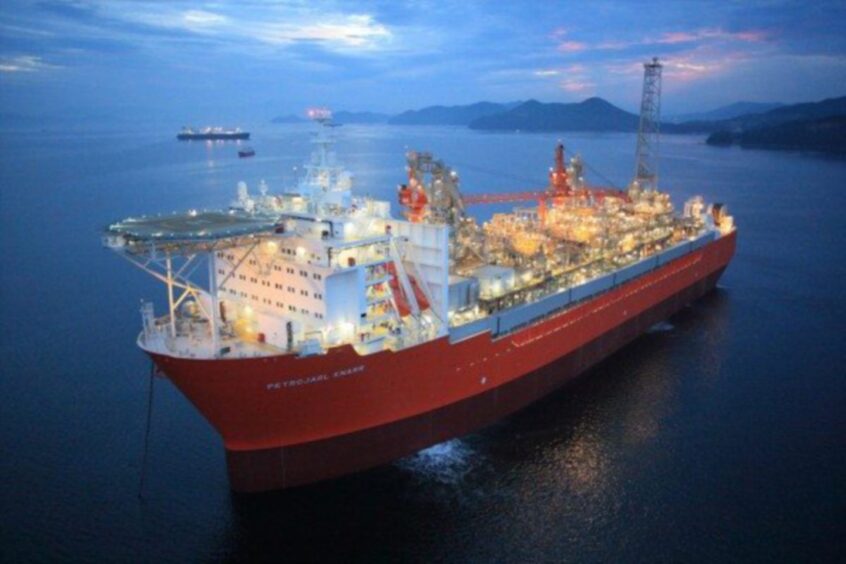
The UK government will not challenge judicial reviews brought against development consent for the Jackdaw and Rosebank offshore oil and gas fields in the North Sea.
Both projects have been subject to legal challenges brought by environmental groups against the decision to approve their development consents.
However this does not mean the licences for Shell’s Jackdaw and Equinor’s Rosebank have been withdrawn, the government added.
The decision was announced alongside plans for new environmental guidance for oil and gas firms on polluting emissions.
The guidance is necessary in light of the Supreme Court ruling on the Finch development. This set a legal precedent that requires regulators to consider the impact of burning oil and gas, called scope 3 emissions, in the Environmental Impact Assessment (EIA) for new projects.
It is now thought to be up to the oil and gas firms to press ahead with their own challenges and they may be required to address scope 3 in updates to their impact assessments.
The government’s decision not to fight the reviews “will save the taxpayer money” DESNZ added.
The government added it will aim to conclude its consultation by spring 2025.
Greenpeace, which brought the legal challenges against Rosebank and Jackdaw alongside Uplift, welcomed the decision.
The group’s UK climate team leader Mel Evans said: “These permits should never have been granted without being properly assessed for their impact on the climate, and following the Supreme Court ruling earlier this year, conceding these cases is the logical course of action.
She added: “The government must now make sure they prioritise public investment to support green jobs growth, that workers affected will be properly supported, and that the funding is ring-fenced for them to switch or retrain into sustainable jobs in renewable energy.”
Equinor said that it is “currently assessing the implications” of the announcement and will maintain close collaboration with all relevant stakeholders to advance the project.
“Rosebank is a vital project for the UK and is bringing benefits in terms of investment, job creation and energy security,” the company added.
A Shell spokesperson also said that the company is “carefully considering the implications” of the announcement.
“We believe the Jackdaw field remains an important development for the UK, providing fuel to heat 1.4 million homes and supporting energy security, as other older gas fields reach the end of production.”
An OEUK spokesperson warned that regulatory uncertainty continues to impact investor confidence, “and we urge the government to proceed at pace with updates to the relevant guidelines in light of the Finch ruling”.
The government also said it will also consult later this year on the implementation of its manifesto position not to issue new oil and gas licences to explore new fields.
Further details including the timings for consultation will be published in due course. In the meantime, the government will be working in partnership with operators to navigate the implications for individual projects.
OEUK added: “Labour made significant manifesto commitments not to revoke existing licences and to manage existing fields for the entirety of their lifespan. Licensing is a complex process and OEUK will continue to work with members to input into the government’s consultation later this year.”
Minister for Energy Michael Shanks said: “This government is committed to making Britain a clean energy superpower, helping to meet our first mission to kickstart economic growth. While we make that transition the oil and gas industry will play an important role in the economy for decades to come.
“As we support the North Sea’s clean energy future, this government is committed to protecting current and future generations of good jobs as we do so.
“We were elected with a mandate to deliver stability, certainty and growth. Every action we take will be in pursuit of that. We will consult at pace on new guidance that takes into account the Supreme Court’s ruling on Environmental Impact Assessments, to enable the industry to plan, secure jobs, and invest in our economy.”
Director of Fossil Free London Robin Wells called on the Labour government to go further and cancel the Rosebank licence.
“The forest is on fire and we’re running out of road. After the two hottest months ever recorded we’re facing down a fiery future of struggle; unless we get urgent change. Starmer promised us no new oil and gas licenses, which is meaningless unless they come out fully against this carbon bomb – the Norwegian wealth fund’s Rosebank oilfield.
“Beyond not defending the case they need to stand boldly in support of its contention: the oil burnt from Rosebank would be a disaster, threatening the erosion of the UK’s coastal towns, freak heat on our streets harming babies and the elderly, and the submersion of London beneath the waves. Labour must stop Rosebank.”
Recommended for you

